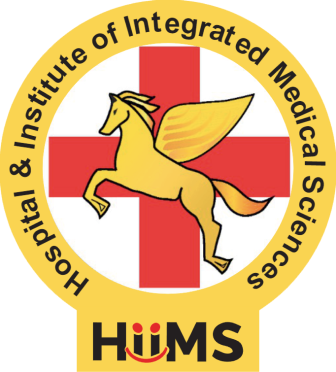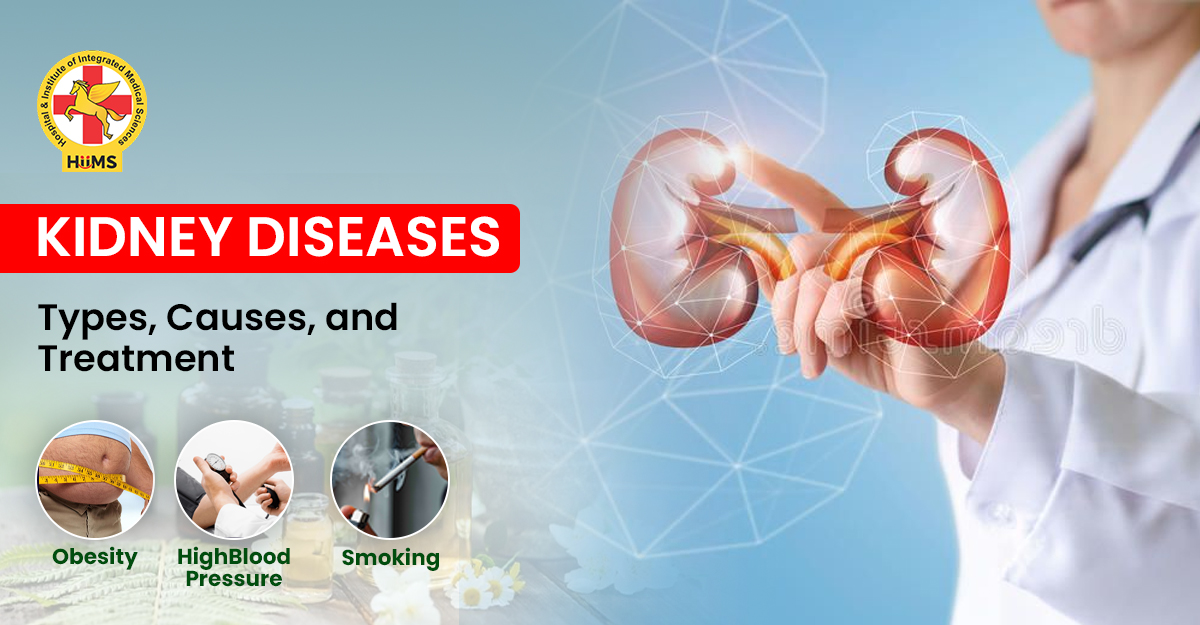Kidneys are small, bean-shaped organs that perform important functions quietly and efficiently. Globally, around 10-15% of adults experience some form of kidney issue.
Often, kidney problems develop gradually, with early signs that can be easy to overlook-persistent fatigue, swelling, or frequent urination may start interrupting daily life. Symptoms can appear subtly: constant tiredness, disrupted sleep patterns, fluctuating blood pressure, or even issues that begin in childhood and persist into adulthood.
Kidney disease treatment isn’t about quick fixes. It requires recognizing patterns, understanding the body’s needs, and taking steady, informed steps to support kidney health over time.
Types of Kidney Diseases
Kidney problems can appear in several forms, each affecting the body differently. Understanding the types of kidney diseases helps in early detection and focused treatment.
- Chronic Kidney Disease (CKD): Develops gradually over months or years, often without obvious symptoms at first.
- Acute Kidney Injury (AKI): Appears suddenly, usually after dehydration, infection, or another medical event, and requires immediate attention.
- Kidney Stones: Solid deposits form in the kidneys, causing pain, discomfort, or urinary issues.
- Kidney Infections: Infections can inflame the kidneys, leading to fever, pain, and frequent urination.
- Polycystic Kidney Disease (PKD): A genetic condition where fluid-filled cysts grow in the kidneys, affecting function over time.
- General Symptoms Across Types: Energy drops, swelling may appear, waste can build up in the bloodstream, and some people may feel dizziness or aches.
Common Causes of Kidney Disease
The main causes of Kidney diseases are usually layered, with several factors acting together. Identifying them can help prevent further damage and guide effective treatment.
- High Blood Pressure: Constantly elevated blood pressure can strain kidneys, reducing their ability to filter blood efficiently.
- Diabetes: Excess blood sugar damages kidney filtering units over time, increasing disease risk.
- Recurrent Urinary Tract Infections: Repeated infections can injure kidney tissue and affect function.
- Certain Medications: Long-term use of some painkillers or antibiotics may harm the kidneys.
- Dehydration: Chronic lack of sufficient water forces kidneys to work harder, potentially causing damage.
- Unhealthy Lifestyle Habits: Excess salt, irregular sleep, and poor diet contribute to kidney stress.
- Digestive Weakness and Toxin Buildup: According to Ayurveda, slow digestion and accumulated toxins can disrupt kidney balance.
- Stress and Routine Imbalances: Emotional stress and inconsistent routines can gradually affect kidney health over time.
Treatment for Kidney Diseases
Effective treatment for kidney diseases requires a personalized approach. It focuses on managing underlying causes, monitoring kidney function, and making lifestyle adjustments, rather than quick fixes.
According to Ayurveda, health depends on balancing Vata, Pitta, and Kapha. When digestion falters, toxins accumulate, and the channels supporting the kidneys get blocked. The Ayurvedic path aims to restore balance, gently cleanse waste, and support the kidneys while keeping the whole body in balance.
Key ayurvedic methods for kidney health include:
1. Panchakarma and Detox
Panchakarma is a five-step cleansing system-Vamana, Virechana, Basti, Nasya, and Raktamokshana. For kidney health, it removes deep toxins, opens blocked channels, and brings a sense of lightness. Changes are subtle, not sudden or painful, and most patients notice small improvements creeping in over weeks.
2. GRAD System
At Jeena Sikho HiiMS, the GRAD system is used to lighten the kidney’s load:
- Head-Down Tilt (HDT): Lying with the head a bit lower than the legs encourages the kidneys to get more blood naturally.
- Hot Water Immersion (HWI): Sitting in comfortably warm water (around 42°C) encourages circulation, sweating, and gentle detox.
3. DIP Diet Protocol
- Breakfast (7-9 AM): Plate 1 includes 3-5 seasonal fruits (body weight × 10 g). Plate 2 follows immediately after and can be a millet-based meal or a light home-cooked dish.
- Lunch (1-2 PM): Start with Plate 1-raw salads measured roughly at 5 g per kg of body weight. Plate 2 includes cooked meals such as dalia, roti, or khichdi, prepared simply and healthily.
- Dinner (before sunset): Option 1-fruits and raw salad (3-5 types). Option 2-Plate 1: fruits and salads, Plate 2: a simple homemade vegetable soup.
Finishing Plate 1 and then moving straight to Plate 2 helps the digestion flow, keeps the body slightly alkaline, and gently supports kidney disease treatment naturally.
4. Key Herbs that Promote Kidney Wellness
- Punarnava: Reduces swelling and detoxifies the body.
- Gokshura: Supports urine flow and helps the kidneys work more smoothly.
- Varuna: Can assist in reducing kidney stones and clearing minor blockages.
When these herbs are combined with balanced meals, small lifestyle changes, and gentle therapies, they work with the body naturally-no forcing, no rushing, just gradual support.
Expert Care Beyond Kidney Health
Kidneys matter, of course, but they aren’t the only concern. At Jeena Sikho HiiMS, the doctors also handle heart conditions, liver problems, infertility, jaundice, cancers, and other serious health issues-always with a holistic approach that considers the whole person.
Each plan is tailored to the person, taking habits, lifestyle, and body needs into account. The approach is broad, combining Ayurveda, modern support, diet guidance, and personalized plans. Every body, every habit, every history is considered before recommending a course.
Conclusion
Kidney disease treatment takes time, patience, and consistency. Diet, lifestyle, herbs, and sometimes modern interventions all work together. Small, repeated changes over weeks and months help remove toxins, improve function, and increase energy.
At Jeena Sikho HiiMS, care is personal and practical. Gradually, swelling eases, the mind starts to feel a bit lighter, and the day-to-day tasks become a touch easier. Recovery takes time-it unfolds gradually, bit by bit. The body regains strength slowly, and the daily tasks that once felt hard start to feel more manageable.
You can schedule a consultation at Jeena Sikho HiiMS for kidney disease treatment personalized to you, and begin a calm, steady path toward healthier kidneys.
FAQs
Q1: What are the main types of kidney diseases?
Chronic kidney disease, sudden kidney injury, kidney stones, infections, and inherited conditions can all affect how the kidneys function, sometimes quietly, sometimes more noticeably.
Q2: What factors lead to kidney problems?
Things like high blood pressure, diabetes, not drinking enough water, certain medicines, and habits built over time often play a part.
Q3: Can Ayurveda help maintain kidney function naturally?
Using herbs, Panchakarma treatments, the GRAD system, and paying attention to diet can gently support the kidneys bit by bit.
Q4: How does diet affect kidney health?
Eating seasonal fruits, fresh salads, and millet-based meals, and keeping meal times roughly consistent, can help the kidneys function more steadily.
Q5: Is kidney care only about medication?
Kidney health works best when herbs, simple daily habits, gentle therapies, and modern treatments all come together-nothing alone does it fully.


